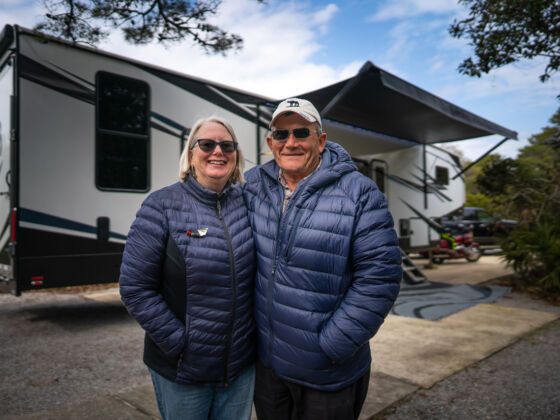Since buying my Roadtrek years ago, I’ve traveled across the country, roughed it in national forests as well as taken it easy in pricey RV resorts, squeezed into some uncomfortable positions to replace broken fixtures, and learned more than a few lessons my wallet and I will never forget. My 20-year-old camper van has wheezed up mountain passes, sheltered me from massive thunderstorms, and broken down just feet from the entrance to Mount Rushmore. I wouldn’t change any of it — except maybe for that breakdown — and if I have a spare day or three, you’d better believe I’m racking up even more miles on the odometer.
In my years on the road, I’ve also had the benefit of friends, both old and new, sharing their RV wisdom. The way I see it? Valuable lessons and silly mistakes are often one and the same — but the silly mistakes don’t have to be yours. Take in these 10 tips, and you won’t need to come by the lessons the hard way.
Tip #1: Ask more of your gear — and get rid of the rest.
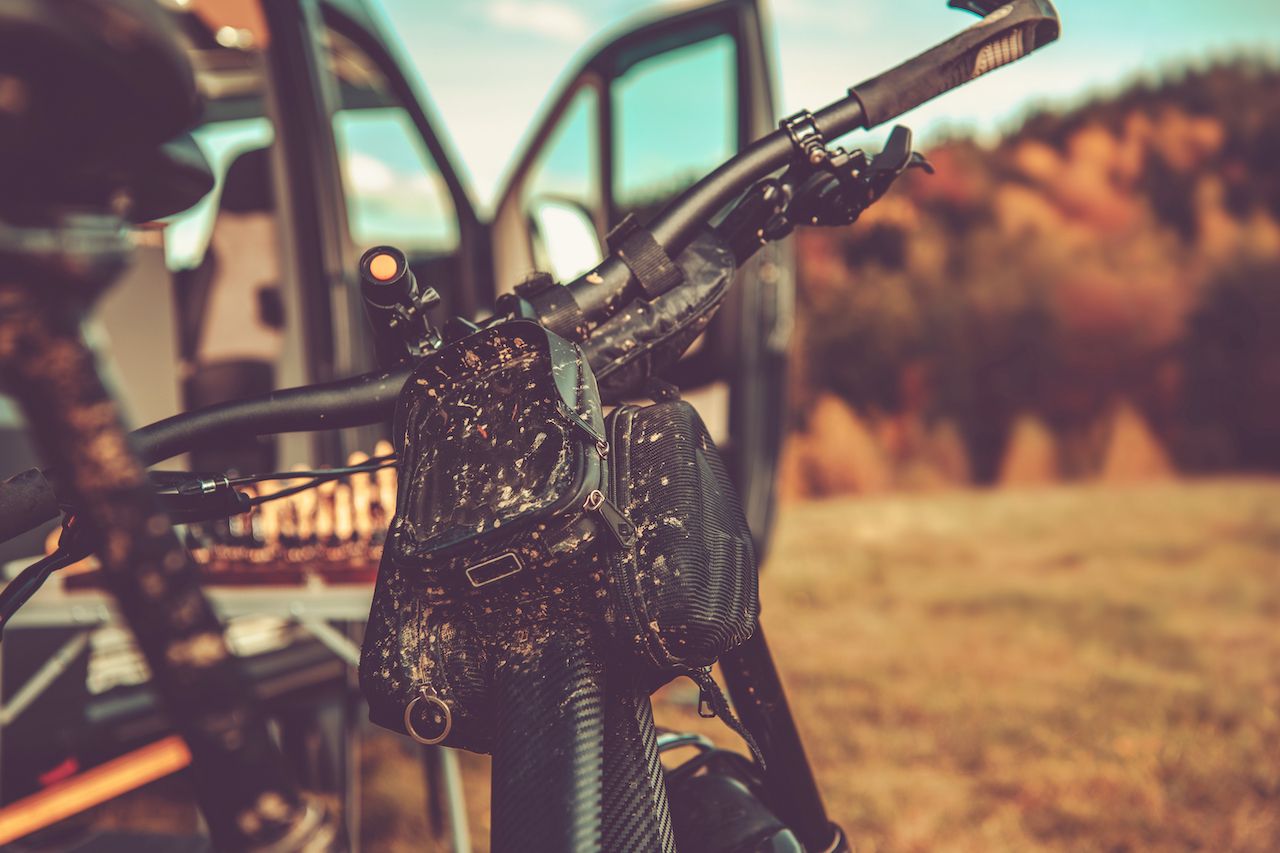
Photo: Virrage Images/Shutterstock
De-clutter your RV at the top of the season — the smaller your rig, the more ruthless you’ll have to be. Remember your mom’s mantra as she forced you to clean your room as a kid: A place for everything, and everything in its place. Does it not have a place? You don’t need it.
Unless you do, and then you need to create a place. Some of my larger camera gear, for example, doesn’t fit in my van’s built-in storage, so I use large plastic bins to keep everything tidy and easily move it from the sleeping area to the front of the van at night. If I’m only planning to kayak one day out of a two-week trip, I’ll rent one at the destination instead of bringing my own. Other situations are more cut-and-dry — haven’t used that massive lantern in a year? Into the garage it goes. (We can worry about de-cluttering the garage later.)
And if you’re in the market for gear, try to buy items that will serve double duty or collapse down, like my go-to Steinhauser fishing rod. And make sure your closet serves double- duty, too — I mountain bike a lot, so I buy jerseys and shorts that won’t look out of place off the trail, allowing me to bring fewer clothes.
Tip #2: Pack that map and compass — and know how to use them.
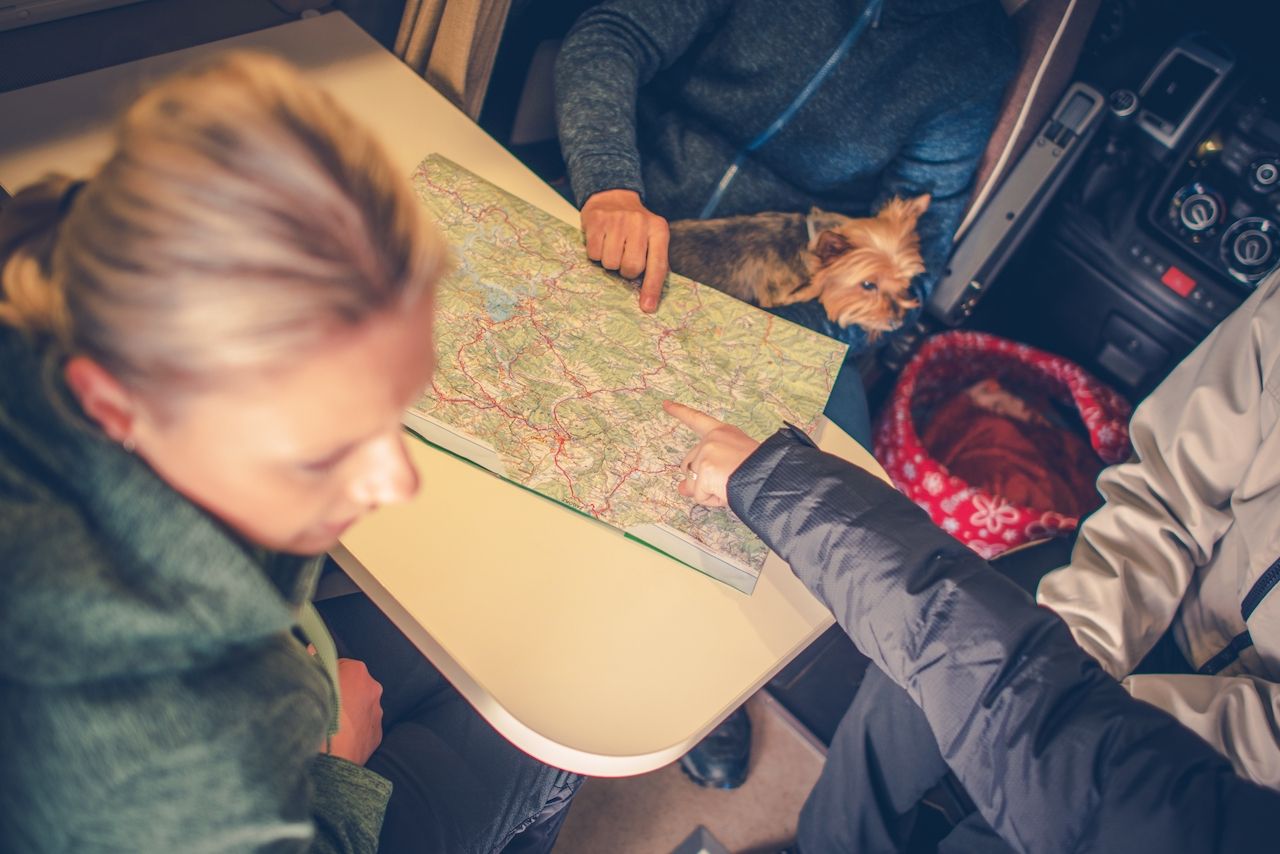
Photo: Virrage Images/Shutterstock
Even in the digital age, a paper map is invaluable. Whether you’re driving with or without GPS, a good road atlas will help you navigate in and out of inevitable no-signal situations. Even more importantly, if you’re out on a long hike with no cell signal, a paper map and compass can be the literal difference between life and death.
Most state and national parks sell detailed maps at their visitor centers — not only do they make for great souvenirs afterward, but nabbing one also makes planning your return trip so much easier.
Tip #3: Take care of your gear, but expect it to break.
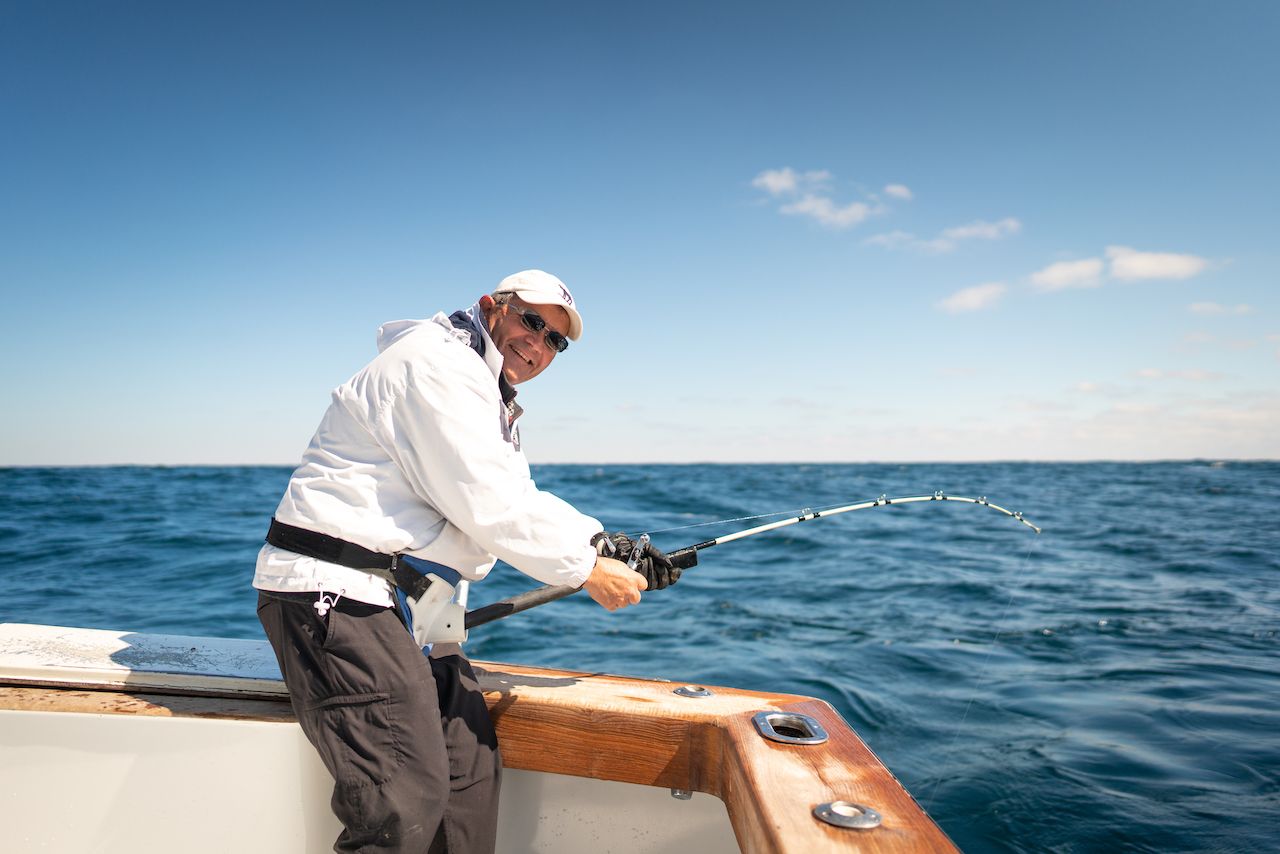
Photo: Tyler Cave
When I’m traveling, you can usually find me hitting the local mountain-bike singletrack. The tools I keep in my Roadtrek allow me to better maintain my gear and repair most minor mishaps, but every now and then, I’ll snap a seatpost or taco a wheel, stuff that can’t easily be fixed in the trailhead parking lot.
Likewise, on my last big van trip, my RV’s serpentine belt snapped, and I had to be towed to the next town for repair. It’s frustrating, but I no longer let incidents like this ruin my day. When you’re having fun, ripping it up in the woods or on the roads, things are going to break. It’s a fact of life. I see buying replacement gear as a “fun tax”: You hate to pay the money, but ultimately, it’s worth it.
On the same token, you’re not powerless — accept that something may break, and accept that you may be the one to fix it. On every trip, I bring a screwdriver with removable bits; wrenches and a socket set; a folding saw; zip ties (these have saved me on more than one occasion!); and any sport-specific tools I need.
Tip #4: Check in with your travel partner regularly.
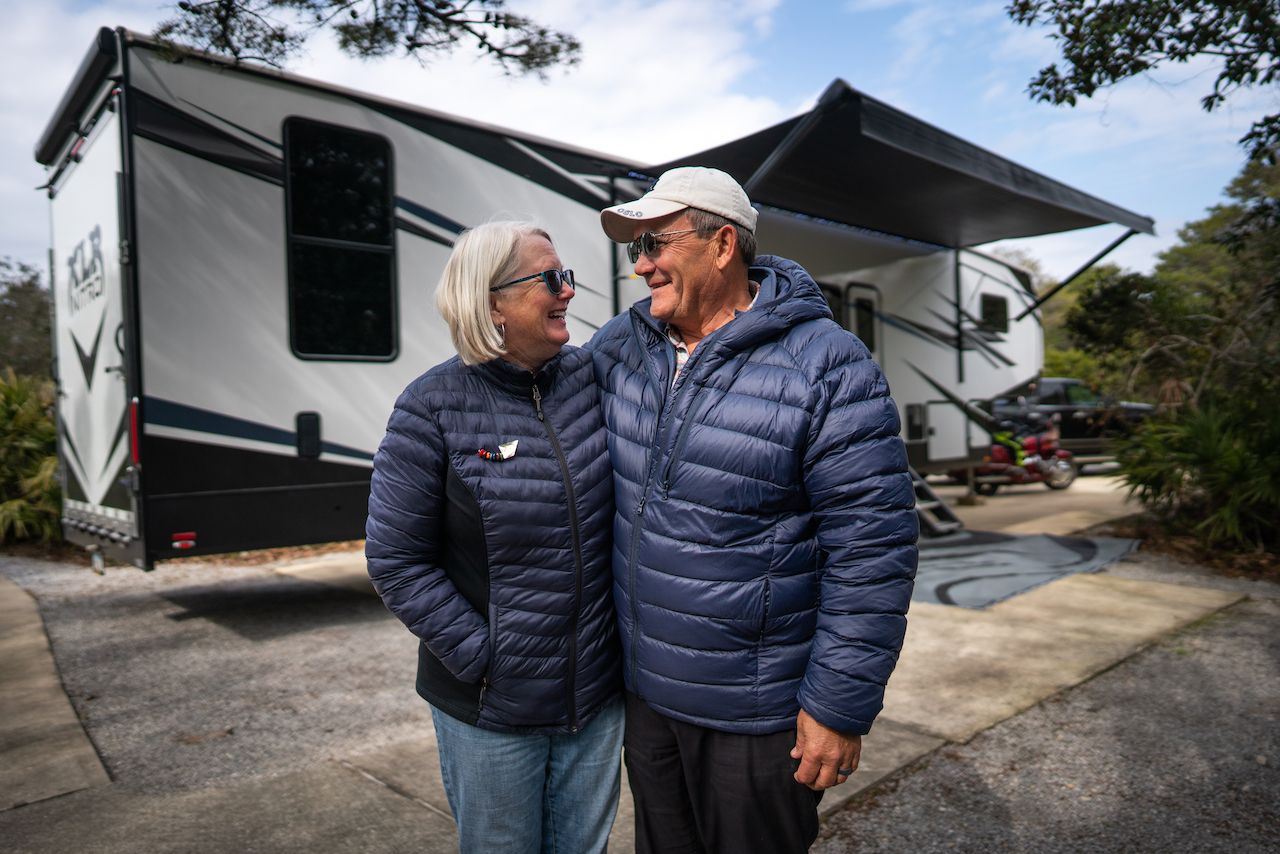
Photo: Tyler Cave
Communication is the key to making your trip go smoothly, especially if it’s a long stint. And now, thanks to COVID-19, it’s even more important.
If you’re veteran RVers, get on the same page when it comes to forming new habits, like packing extra supplies, making fewer stops, or avoiding crowds. Personally, I’m a stickler when it comes to safety precautions and even gave up one of my favorite pre-pandemic pastimes: brewery-hopping. If my wife, Dee, and I do decide to grab a beer or dinner outside our campsite, we call ahead to make sure they have socially distanced outdoor seating. If we stay at a campground, we use our own bathroom facilities and typically don’t engage with our neighbors beyond a friendly wave.
If you’re new to the RV life, it’s even more important to make these plans beforehand. Soon after I bought my Roadtrek, I began planning my first trip with Dee. I made an offhand remark about boondocking in a remote location, and she was taken aback — she’d assumed we’d stay in established campgrounds with electric hookups. That led to a conversation about what she was and wasn’t comfortable with on our trips. We talked it out, compromised, and now, several years later, we’ve got our camping down to an art.
Tip #5: Get a cell-signal booster.
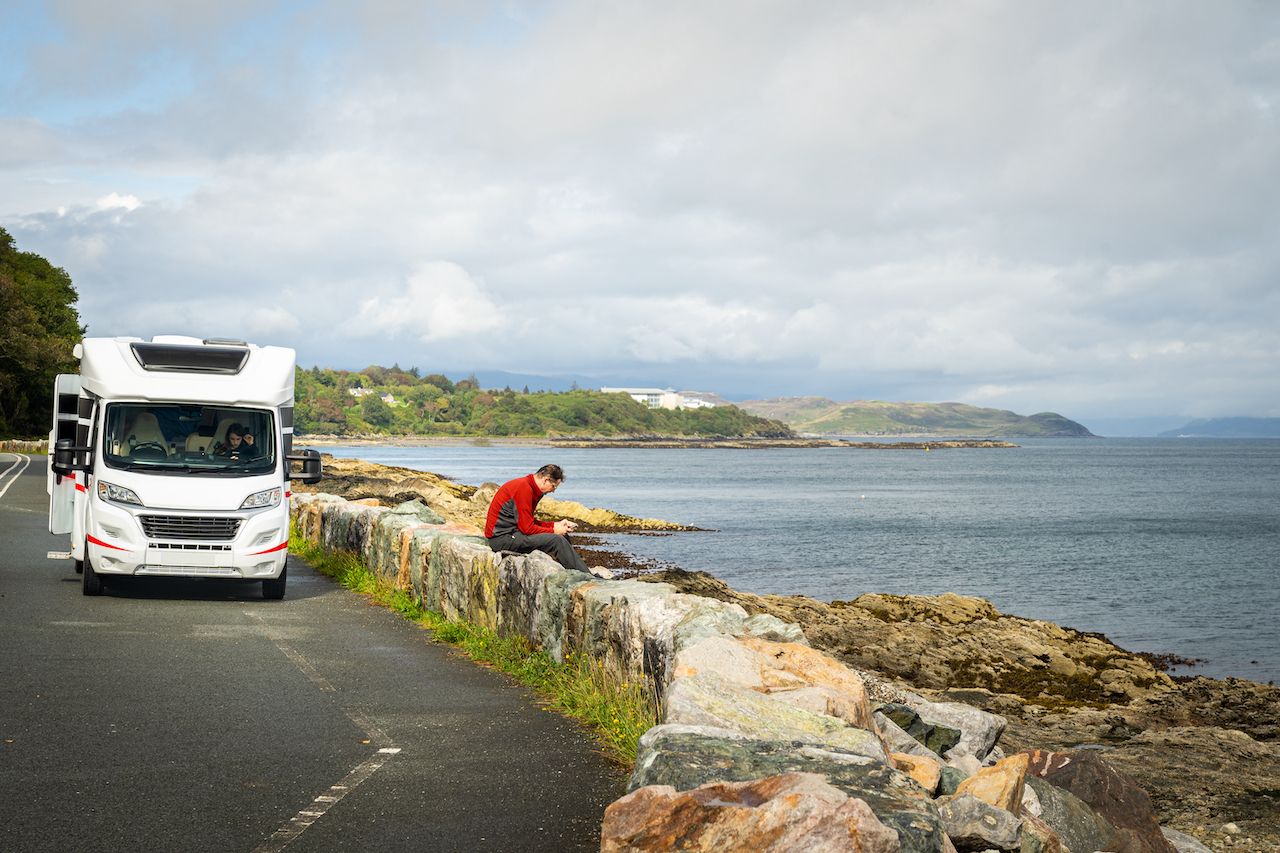
Photo: Kaca Skokanova/Shutterstock
I do a lot of camping in areas where cell signals can be virtually nonexistent, but work often requires access to wifi. Climbing to the top of a hill is often enough to get a stronger signal from the nearest tower, but what if you’re just wanting to surf the Internet or check in with the family for a bit before bed?
I mounted a cell-signal booster to a telescoping pole on the exterior of my van, and it works wonders. When I park for the night, I extend the pole and instantly go from a weak one bar to three or four.
Tip #6: Slow down — but don’t be afraid to quickly change things up.
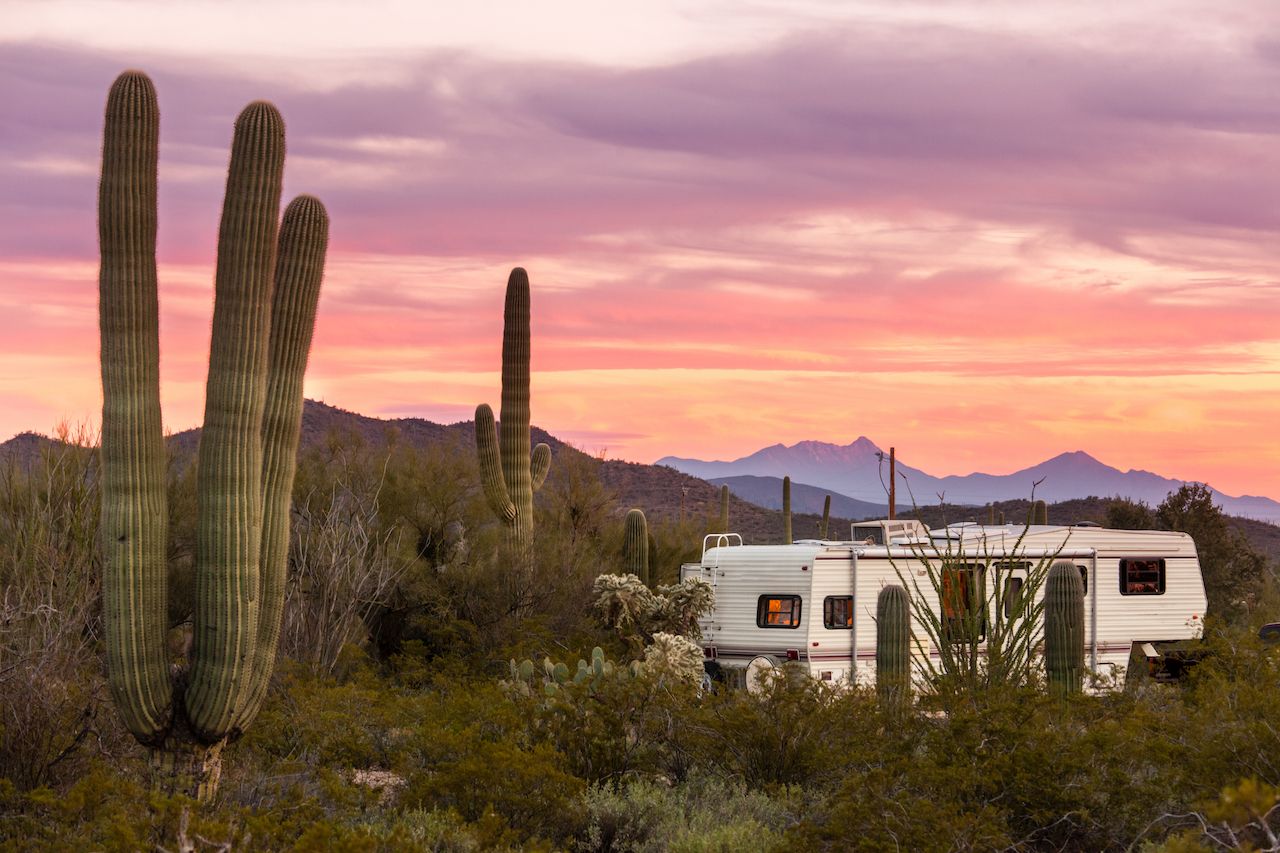
Photo: Pi-Lens/Shutterstock
Here’s a lesson I learned the long and hard way: Try not to fit too much into your trip. It’s almost impossible to truly experience a city or national park in a single day, and you’ll end up spending more time behind the wheel instead of on the trail or lake. I hate arriving at a park after spending 10 hours on the road and being too exhausted to do more than a short hike. That’s never the goal.
Lesson learned, I always try to build in some extra time between destinations, so if I’m having a great time in one place, I can extend my stay. Likewise, if I think I’ve tapped out the activities, I simply leave earlier than planned. Don’t be afraid to move on even if you’ve booked an extra night or two at a campground. Your time — and enjoyment — is worth far more than the $20 or $30 you’ll throw away.
Tip #7: Always bring a portable stove.
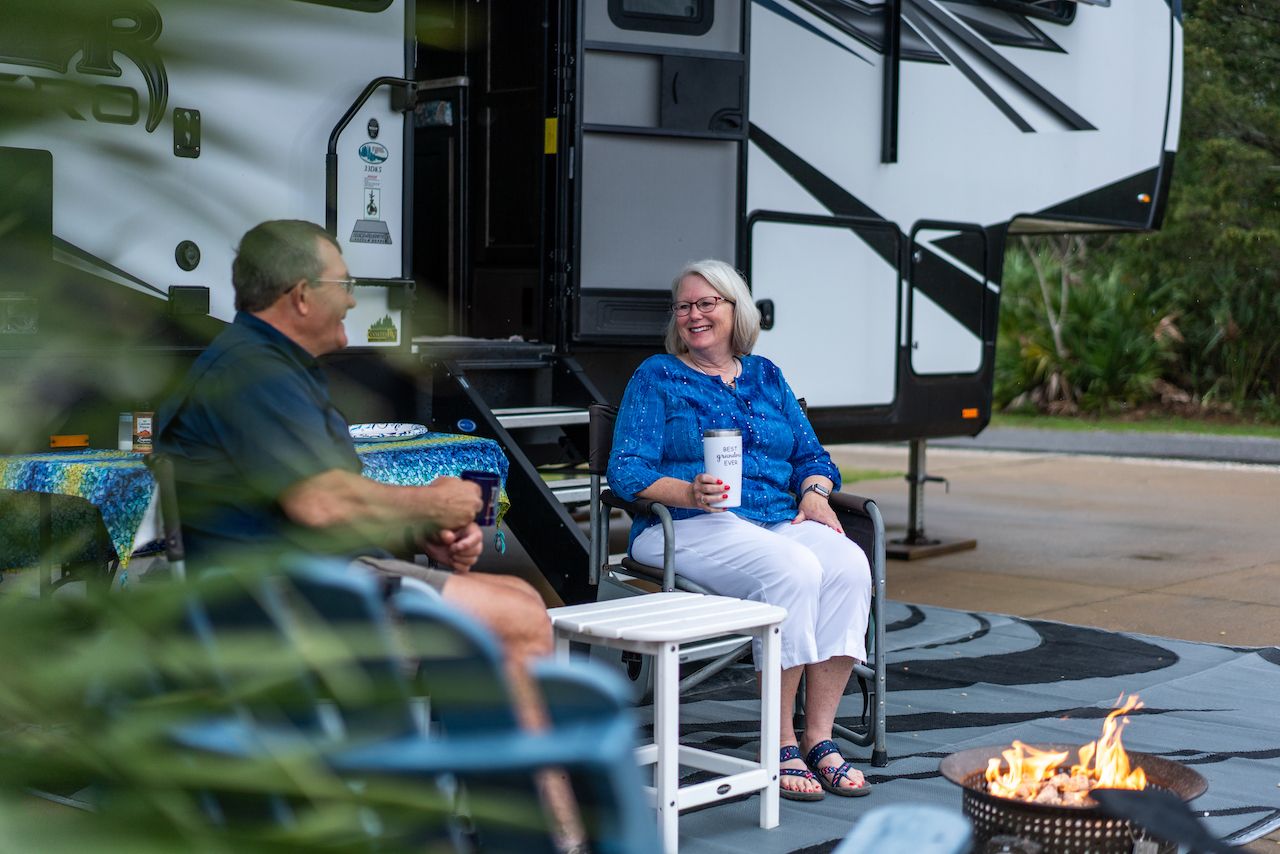
Photo: Tyler Cave
My Roadtrek has a serviceable two-burner stove inside, but if the weather’s nice, I prefer to cook outside. A basic two-burner camp stove doesn’t take up a lot of storage room and allows you to spend time with your friends and family around the picnic table — or simply gives you an opportunity for more time outside in the fresh air.
Tip #8: Go solar when possible.
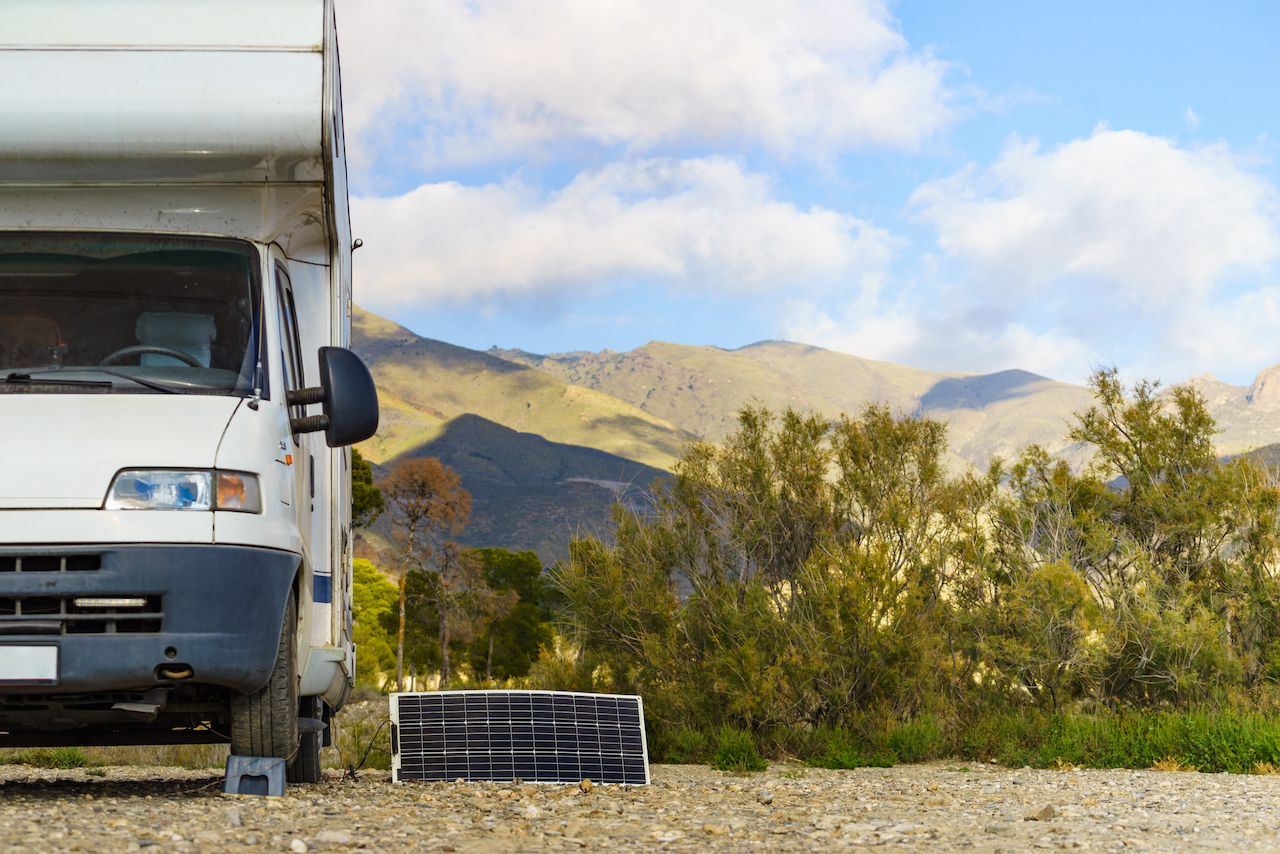
Photo: Voyagerix/Shutterstock
If I’m boondocking in one place for a while, I rely on my solar setup to stay energized. It’s efficient, reliable, and sustainable, so what’s not to like? Until you run out of water or need your black tank dumped, you can just stay out in nature — potentially for weeks!
That being said, know its limitations. While I can keep my electronics topped off, I can’t run my coffee maker, microwave, or air conditioning on solar alone. Invest in a power pack to serve as a backup in case the clouds roll in.
Tip #9: Designate camera- and phone-free moments.
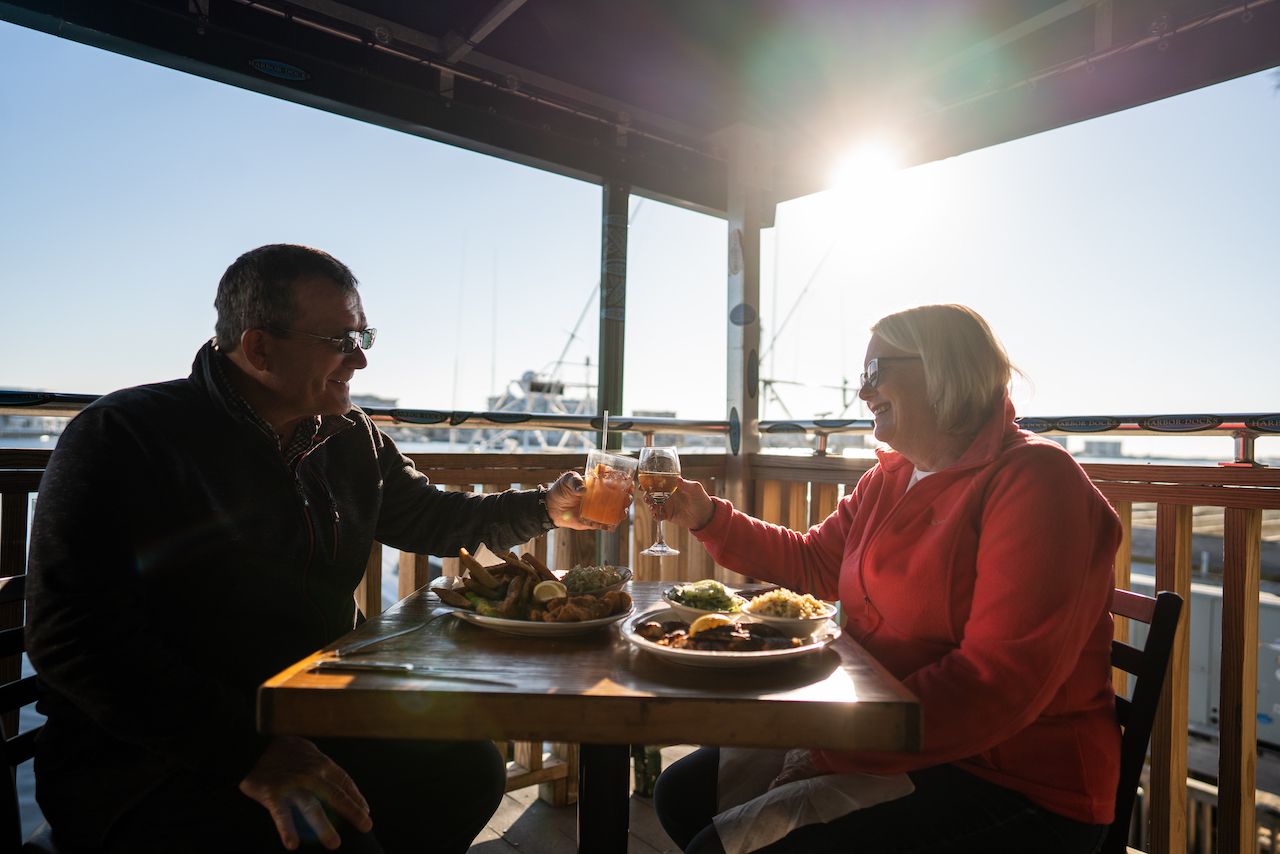
Photo: Tyler Cave
Yes, that’s a gorgeous sunset over the mountains. Have you seen it?
As a landscape photographer, this is advice I have to force myself to take sometimes. Many of the most beautiful moments I’ve ever experienced — sunset at Yosemite, a momma brown bear and her frolicking cubs in Katmai National Park — were seen entirely from the viewfinder of my digital camera. I’m not sure I would do it that way again.
Learn from my mistake: Fire off some quick snapshots for social media, but then put your phone or camera away and just take in the moment. This is doubly true if you’re standing there next to your significant other. Those are the moments you’ll truly remember forever, photograph or not. Keep the words of the immortal Kurt Vonnegut in mind: “I urge you to please notice when you are happy, and exclaim or murmur or think at some point, ‘If this isn’t nice, I don’t know what is.’”
Tip #10: Invest in your memories.
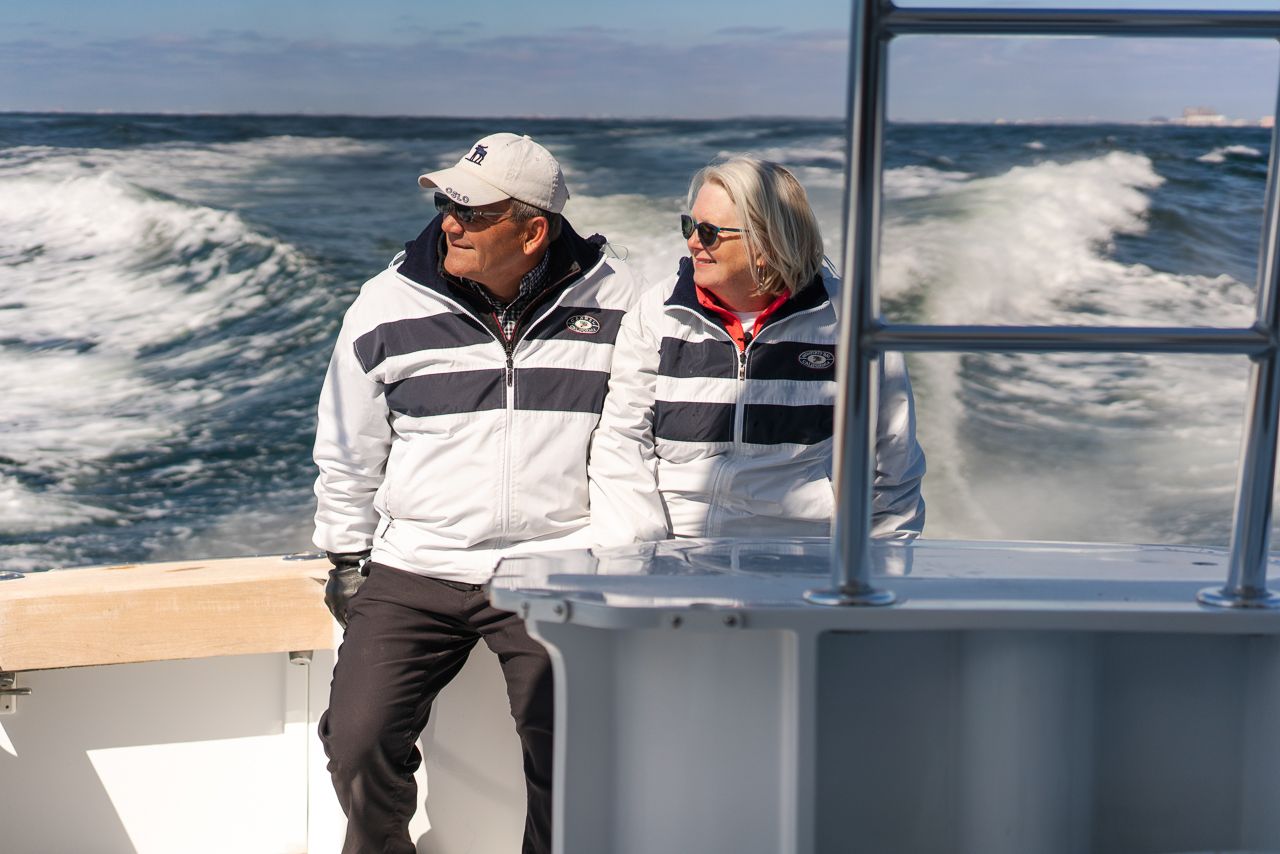
Photo: Tyler Cave
Last year, I did two RV trips to Michigan’s Pictured Rocks National Lakeshore, one solo and the other with Dee. The first time around, I considered two afternoon paddling trips: one was a bit pricey but looked amazing from the photos; the less expensive one had decent — but not spectacular — reviews. I chose the cheaper option and got exactly that. When I went back with Dee, we booked the more expensive tour operator, and the two of us had an amazing time. It was a good reminder that you always get what you pay for.
If I’m buying a bike or a kayak or another piece of equipment that I’m going to spend hours upon hours using, I spend extra to make sure it’s comfortable and works well — that way I both use and enjoy it more. Same goes for your RV and all its accessories: Even if it’s just patio lights, spending a little money on those extra accoutrements can make your RV days, your RV memories, that much more inviting. And you definitely want those to last a lifetime.

